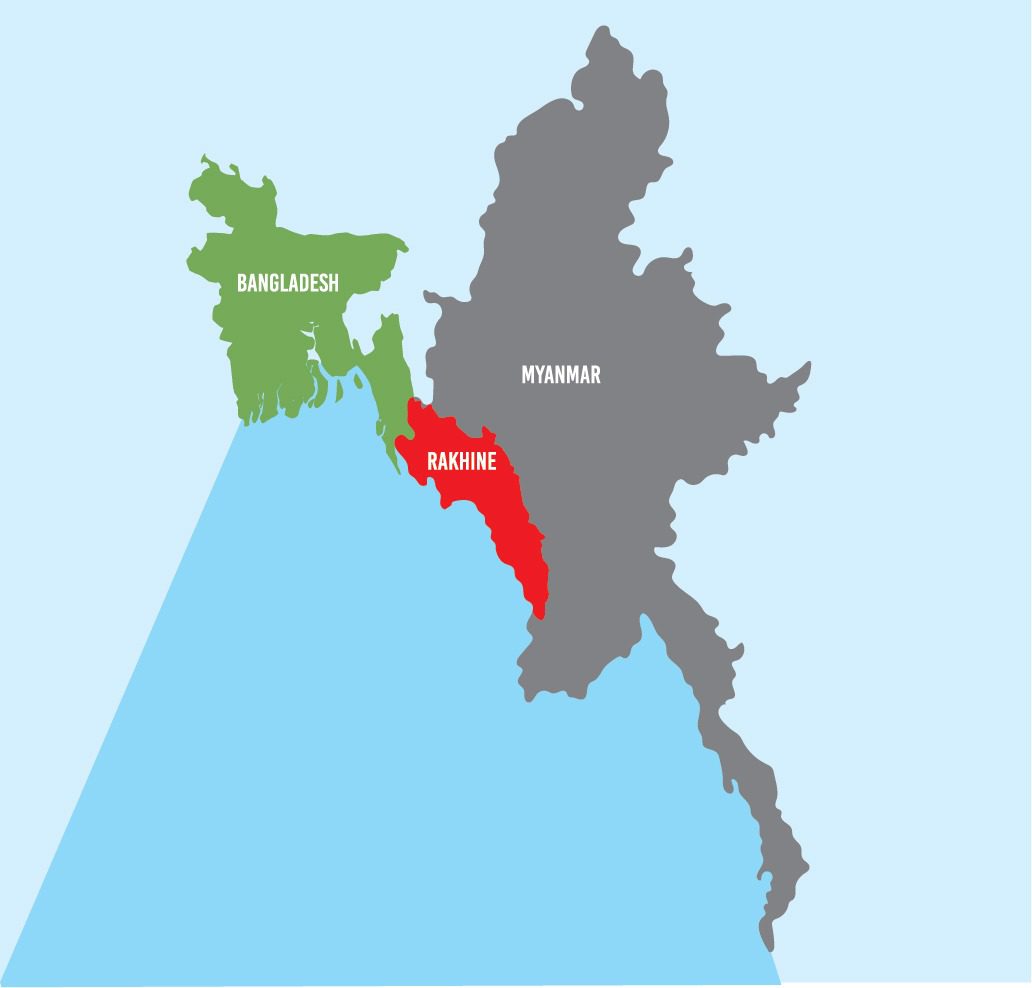The United Nations has commended Bangladesh for its engagement on the Rakhine conflict, even as controversy brews at home over the government’s cautious decision to allow a humanitarian corridor into Myanmar’s troubled state.
UN High Commissioner for Refugees Filippo Grandi has praised the interim government led by Muhammad Yunus for seeking dialogue with parties to the Rakhine conflict.
Addressing the UN Security Council, Grandi acknowledged the challenges but stressed that the pursuit of peace must continue.
“Many will argue that resolution is impossible due to bloodshed, discrimination, and competing interests,” he said.
“But inertia must be broken,” Grandi urged, calling for greater international support for humanitarian efforts and sustainable solutions for the Rohingya people.
Grandi, however, did not detail Bangladesh’s specific efforts toward resolving the Rakhine crisis.
Within Bangladesh, conflicting statements from top officials have muddied the waters further.
While Foreign Affairs Adviser Touhid Hossain on Monday disclosed that Bangladesh had agreed in principle to the UN’s proposal for a humanitarian corridor, Chief Adviser’s Press Secretary Shafiqul Alam said the following day that no formal decision had been taken.
“We want to make it categorically clear that the government has not discussed the so-called ‘humanitarian corridor’ with the UN or any other entity,” Alam said.
He added that Bangladesh would consider providing logistical support if a UN-led humanitarian initiative is formally proposed.
Hossain had earlier confirmed that Dhaka agreed to the corridor in principle, contingent upon undisclosed conditions.
The backdrop of the decision is particularly sensitive.
Bangladesh hosts about two million Rohingya refugees, most of whom fled after Myanmar’s military crackdown in 2017. Grandi, while thanking Bangladesh for its hospitality of refugees, warned that worsening conditions inside Myanmar demanded urgent international attention.
Meanwhile, criticism at home has been fierce.
Opposition parties, including the Bangladesh Nationalist Party (BNP), Bangladesh Jamaat-e-Islami, and the student-led National Citizen Party (NCP), sharply reacted to the government’s move.
BNP Secretary General Mirza Fakhrul Islam Alamgir warned that allowing a humanitarian corridor could endanger Bangladesh’s sovereignty.
“Humanitarian support is vital, but turning Bangladesh into a transit point is a strategic decision that affects our national security. The government had a duty to consult all political parties,” he said.
Jamaat-e-Islami’s Ameer Dr. Shafiqur Rahman also voiced alarm via Facebook, stressing the need for public clarification due to potential security implications.
Alauddin Mohammad, Joint Member Secretary of the NCP, echoed similar concerns, emphasising that the post-uprising expectation is for all critical foreign policy decisions to reflect national consensus.
“No government should unilaterally make decisions on matters of such grave importance,” he said.
Press Secretary Alam confirmed that concerned stakeholders will be discussed in due course of time.
He also pushed back against allegations that the proposed corridor is part of a broader geopolitical strategy by a major world power, dismissing them as “pure propaganda” designed to destabilise Bangladesh.


